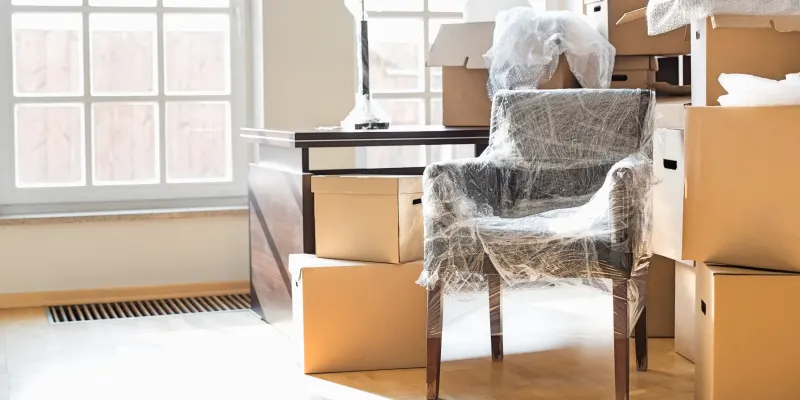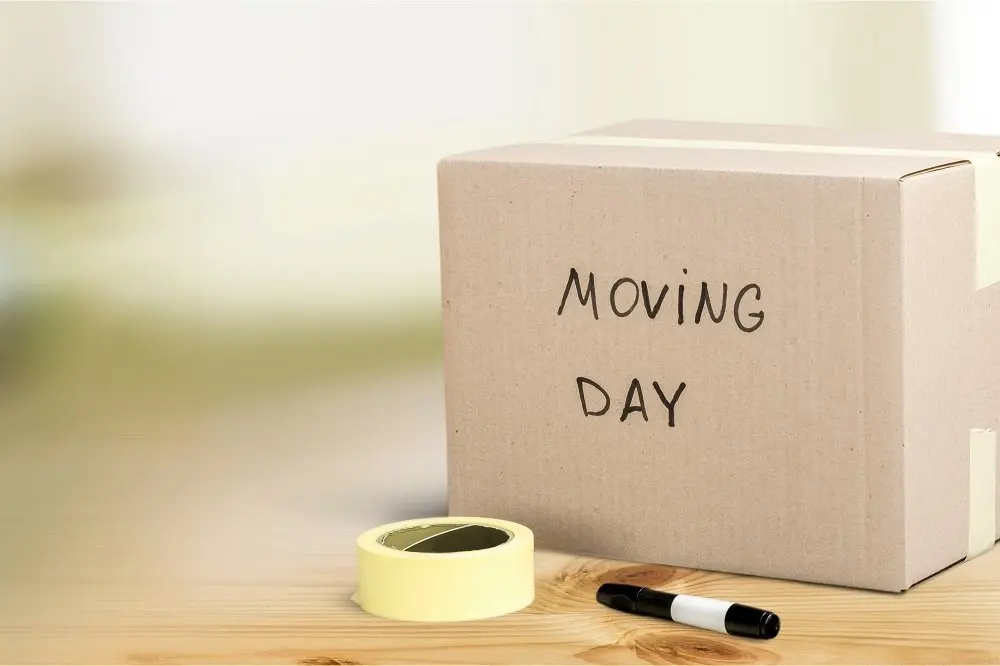Moving to a new home can be an exciting yet stressful experience. Among the numerous tasks involved in the process, paying attention to moving insurance is crucial. Moving insurance protects your belongings during transit, offering peace of mind and financial security. This blog post will explore moving insurance, covering its types, benefits, considerations, and essential tips to ensure a smooth and worry-free move.
Understanding Moving Insurance
Moving insurance is a specialized coverage designed to safeguard your belongings while being transported from one location to another. It protects against theft, loss, or damage during moving. While reputable moving companies take great care to ensure the safety of your possessions, unforeseen circumstances can arise. Having appropriate moving insurance is a wise decision to mitigate any potential losses.
Types of Moving Insurance
There are a few types of moving insurance each with their own type of insurance coverage and premium charges.
- Released Value Protection: This type of coverage is offered by default by moving companies at no additional charge. However, it provides minimal coverage, typically compensating only a fraction of the item's actual value, usually based on weight.
- Full Value Protection: This comprehensive coverage comes at an additional cost but offers greater protection. It entitles you to replace, repair, or reimburse damaged or lost items based on their market value.
- Third-Party Insurance: Apart from the insurance provided by moving companies, you can purchase additional coverage from a third-party insurance provider. These policies often offer a more extensive range, including specific items or situations not covered by the moving company's insurance.
Benefits of Moving Insurance
Obtaining moving insurance brings several advantages that extend beyond financial protection:
- Peace of Mind: Moving can be stressful, and having insurance provides peace of mind, knowing your possessions are protected.
- Coverage for Valuables: Moving insurance ensures that valuable items, such as electronics, jewelry, or antiques, are covered against damage or loss.
- Efficient Claims: Process: In the unfortunate event of damage or loss, moving insurance simplifies the claims process, allowing for a quicker resolution and compensation.
Considerations and Tips
Moving companies typically include a basic insurance coverage for their cargo. However, if the basic coverage option do not meet your requirements, you can purchase moving insurance from a third party moving insurance company or a reputable insurance company.
- Evaluate your Moving Company's Insurance: Understand the coverage options your chosen moving company provides. Determine whether the default coverage is sufficient or if additional insurance is necessary.
- Research Third-Party Insurance Providers: If the coverage is inadequate, research reputable third-party insurance providers. Compare policies, coverage limits, deductibles, and premiums to find the best fit for your needs. Third party moving insurance will have additional moving insurance cost to cover the higher value protection that you require.
- Accurate Valuation: Take an inventory of your belongings and assign accurate values to them. This will help determine the appropriate coverage amount needed and ensure a fair settlement in case of a claim. If needed you might require documented valuation from experts for your more expensive belongings.
- Read the Fine Print: Carefully review the terms and conditions of the moving insurance policy. Pay attention to coverage limitations, exclusions, and any additional requirements for filing a claim.
- Document and Photograph: Before moving, photograph your valuable items before moving. This evidence will be helpful in case of a claim, providing proof of the item's pre-move condition.
- Ask Questions: Don't hesitate to ask your moving company or insurance provider any questions or concerns you may have. Understanding the policy details will help you make informed decisions.
Factors Affecting Moving Insurance Costs
Ensuring that your belongings are protected during the relocation process is essential. The last thing you want is to arrive at your new home only to discover that your valuable items have been damaged or lost during transport. That's why moving insurance is an important consideration when planning a move. However, moving insurance costs can vary widely based on several factors. In this blog post, we'll explore the factors that affect moving insurance costs.
Type of Moving Insurance
The type of moving insurance you choose will be one of the most significant factors in determining the cost. There are three primary types of moving insurance: basic coverage, declared value protection, and full-value protection.
- Basic coverage is typically included in the cost of your move, but it only provides limited protection for your belongings. Basic coverage may only reimburse you for damages or losses at a rate of $0.60 per pound per item, which may need to be more to cover the full replacement value of your items.
- Declared value protection is a step up from basic coverage and allows you to declare a specific value for your items. This type of coverage typically costs more than basic coverage but provides better protection if your belongings are lost or damaged during the move.
- Full-value protection is the most comprehensive type of moving insurance. It covers the full replacement value of your belongings and is the best option for those with high-value items. However, full-value protection is also the most expensive type of moving insurance.
Distance of the Move
The distance of your move can also affect the cost of moving insurance. The farther your items need to travel, the higher the risk of damage or loss during transport, which may increase the cost of your coverage. If you're moving long-distance or across state lines, you may need additional coverage to protect your belongings during transit.
Weight of Your Belongings
The weight of your belongings is another factor that can affect moving insurance costs. The more items you have, the higher the risk of damage or loss during transport. Therefore, if you have many heavy items, you may need additional coverage to protect them.
Value of Your Belongings
The value of your belongings is also a significant factor in the cost of moving insurance. If you have high-value items such as artwork, antiques, or electronics, you may need additional coverage to ensure they are adequately protected during the move. Full-value protection is the best option for those with high-value items, as it covers the full replacement value of your belongings.
Deductible Amount
Like other types of insurance, moving insurance typically comes with a deductible. The deductible is the amount you'll pay out of pocket before your insurance coverage kicks in. The higher your deductible, the lower your monthly premiums will be. However, if you need to make a claim, you must pay more out of pocket before your coverage kicks in.
Moving Company Reputation
The reputation of the moving company you hire can also affect moving insurance costs. If the moving company has a good reputation, they can offer better coverage at a lower cost. However, their rates may be higher if they have had issues with lost or damaged items.
Considering these factors, you can determine which type of moving insurance is right for your needs and budget. Moving insurance may require an upfront investment, but it could provide invaluable peace of mind if something goes wrong during your move.
Claims Process and Timelines
In the unfortunate event of damage, loss, or theft during the move, it's crucial to understand the claims process and the associated timelines. Notify your moving company and insurance provider promptly, providing them with the necessary documentation and evidence. Keep detailed communication records and follow any instructions provided to ensure a smooth and efficient claims process.
Supplemental Insurance for High-Value Items
You should explore supplemental insurance options if you own high-value items such as artwork, collectibles, or fine jewelry. These items may have specific coverage limits or exclusions under standard moving insurance policies. Working with an insurance specialist who understands the unique requirements of such items can help ensure they are adequately protected during the move.
Researching Insurance Providers and Reviews
When considering third-party insurance providers, take the time to research their reputation, financial stability, and customer reviews. Look for providers with a proven track record of reliable coverage and responsive customer service. Reading reviews and seeking recommendations can help you make an informed decision and choose a reputable provider.
Conclusion
Moving can be stressful and expensive, but the right insurance can provide peace of mind if something goes wrong. When deciding on moving insurance, consider factors such as distance, weight, the value of belongings, deductible amounts, and the reputation of your moving company. Supplemental coverage for high-value items can also offer added protection during transit. At Quick & Easy Moving, we can help you find the ideal insurance solution for your move and provide personalized service. Contact us today to learn more about our moving insurance solutions.
Moving Tips and Tricks

How do I Choose a Moving Company?
Choosing a moving company can be tricky and sometimes overwhelming with so many options to choose from. That’s why Quick and Easy Moving have created our top 5 tips on how to choose a moving company for your upcoming move. Just follow this simple how-to guide... 1. Ask friends and family Referrals are always one of the most effective ways to choose any product or service. Hearing feedback or seeing...
Read More

























